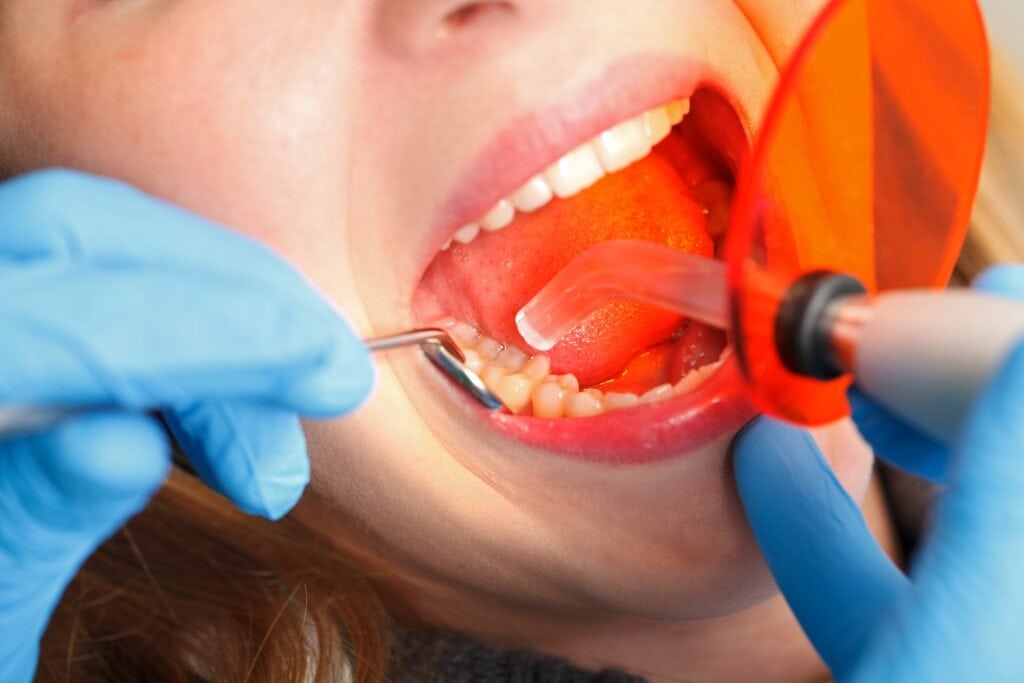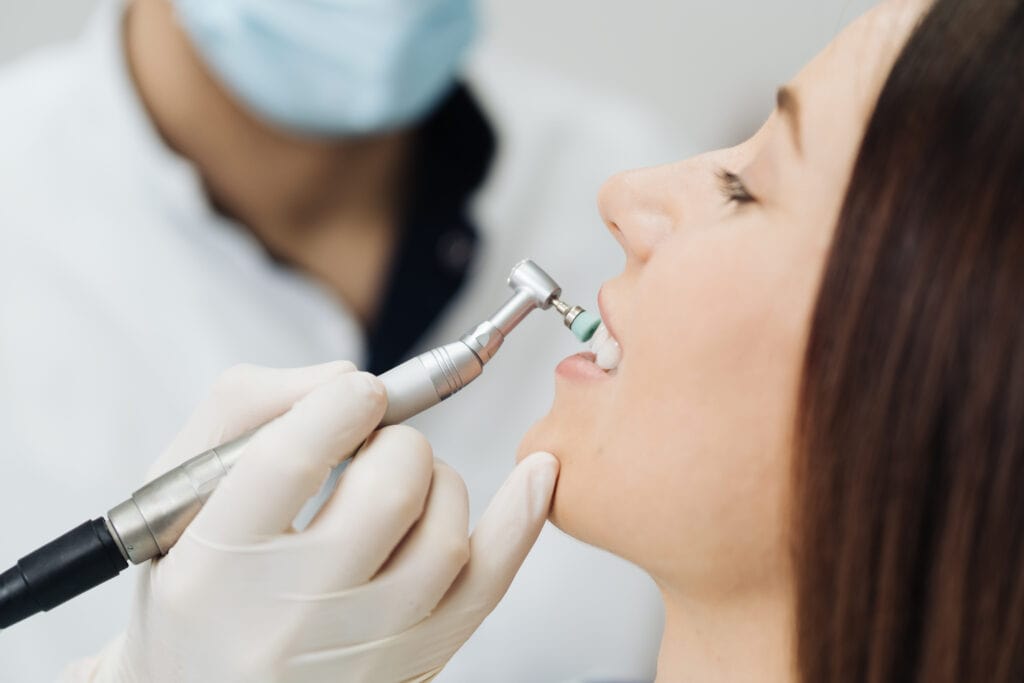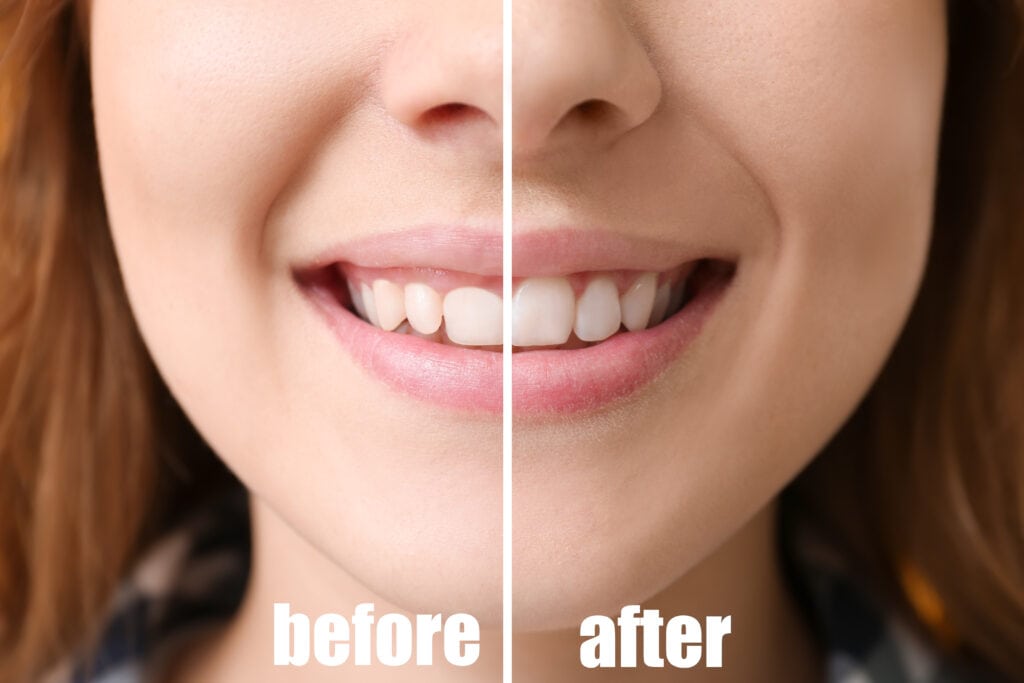
Sensitive teeth can not only cause pain but can make eating and drinking a chore rather than an enjoyable experience. No one has lived with sensitive teeth. Dentists have several techniques they can use to end the sensitivity.
The exact treatment your dentist recommends will depend on your specific condition but can include procedures from tooth reshaping to a root canal.
Below is a list of some of the ways your dentist can address your tooth sensitivity.
What Causes Tooth Sensitivity?

Before your dentist can make a recommendation to fix tooth sensitivity issues, they will need to figure out the underlying problem. This will include doing x-rays, an exam, and teeth cleaning.
Some people may have weakened tooth enamel so the tooth becomes sensitive to hot and cold foods and drinks. A tooth may be damaged and that affects the nerves underneath the tooth. You may have an infection that is causing a tooth to have pain when pressure is applied while chewing.
In fact, most tooth sensitivity issues can be blamed either on worn enamel or exposed tooth roots. Exposed roots could be due to chronic problems like gum disease and could lead to tooth loss if not addressed.
A tooth could be damaged and that may make it more sensitive. A hairline crack or a chip can cause sensitivity. You could also have a cavity or a filling that needs to be replaced.
Some of these issues may be more pronounced when you eat certain foods like spicy or acidic food. These types of food can cause pain along a gumline that has an infection or disease or in an area where you have a cavity or a split tooth.
Some people overuse teeth whitening products at home and that can cause tooth sensitivity. You won’t know what the cause is until you have a dentist perform an exam.
Dental Solutions to Teeth Sensitivity
Dentists use fluoride treatments to reduce overall teeth sensitivity. This can be applied to specific areas that are painful and will strengthen tooth enamel. Your dentist may also give you a prescription for a custom tray of fluoride treatment you can apply at home in between dental appointments.
You should ask your dentist about similar products that can add to enamel protection that can be bought over the counter. There are many advertised and your dentist will know which ones work the best.

Teeth sensitivity that is caused by exposed root surfaces can be fixed by bonding. Your dentist will apply a resin to the sensitive areas that will protect them and keep elements out of those areas. You will likely need to be given a local anesthetic for this procedure.
There is even bonding that can be done along the gum line to keep debris out of those areas.
Deep Cleaning
Your dentist may suggest a deep cleaning to reduce issues like chronic gingivitis and gum disease which will reduce tooth and mouth sensitivity.
A deep cleaning may help your gums reattach to your teeth so you have a healthier mouth and that will reduce sensitivity and pain.
Deep teeth cleaning involves your dentist going below the gum line to remove debris, tartar, and plaque. That extra debris could contribute to gum disease as well as tooth sensitivity.

This isn’t a typical procedure used for tooth sensitivity but works well. It is considered the most effective treatment for tooth sensitivity. It is used when tooth pain is significant and other treatments aren’t working.
A root canal treats problems within the pulp or root of the tooth. It could be an infection is starting or other problems are causing tooth pain.
A dentist can tell you if there’s an infection and whether you need a root canal.
Your tooth will need a cap or crown if a root canal is done. This is typically done in two sessions with the first being the root canal and sending off for the customized cap.
The second visit is to install the crown or cap. However, many dental offices have on-site facilities that can produce the crown there. If that is the case, you can get your root canal and crown during the same visit.
Surgical Gum Grafting
Gum tissue loss can be a cause of teeth sensitivity. This could be a periodontal disease that needs to be addressed. Once the disease is treated, the dentist may recommend a gum graft.
A gum graft is where tissue is taken from another part of your mouth and attached to gums where tissue is lost. This may sound extensive but it is not as complicated as it sounds. Dentists are well-trained to do this procedure or can refer you to a surgeon.
A gum graft protects tooth roots that are otherwise exposed and can reduce tooth sensitivity.
It will require anesthesia and the type it will require may mean you will need someone to bring you to the appointment and take you home.
You may need some pain medication afterward. Your dentist will determine that and give you a prescription. They will also instruct you on proper after-care to do after your gum graft surgery.


Tooth Contouring
Some tooth sensitivity can be reduced with a dentist performing a tooth contouring procedure. This is where the dentist files off part of the tooth. This isn’t the first procedure recommended for sensitive teeth but is an option if the length or the shape of a tooth is affecting the sensitivity of other teeth, causing pain, or bite problems.
Bite problems can cause teeth to strike oddly against each other and that can cause pain and tooth sensitivity. Contouring a tooth or two can eliminate the odd strike, end the pain, and help with better function
A dentist may recommend low-cost options to address tooth sensitivity before suggesting surgery. One may be to use a desensitizing toothpaste. These products can block tooth pain and are available over the counter. Your dentist may have a favorite to suggest or may give you a prescription.
While some may think of sensitive teeth as something that affects older people more, it can affect anyone. No one should let the problem get worse without addressing it with their dentist.
Don’t Ignore Sensitive Teeth
Your sensitive teeth may be trying to tell you something, especially if they suddenly are affected by hot and cold beverages. It could be an infection or something else. You won’t know until you consult with a dentist.
Your dentist will do an exam and x-rays to determine the problem and offer suggestions. You may feel that’s unnecessary but it’s the place to start in addressing your sensitive teeth.
There are many options to resolve the problem so it’s worth exploring all of them to find the right one for you and your teeth. Insurance covers many of these procedures so cost shouldn’t be a deterrent to getting good, pain-free teeth.
A dental condition will worsen unless there is intervention and a dentist can tell you what way is the best way to resolve your tooth issues. You owe it to yourself not to continue to live in pain. Talk to a dentist today.
